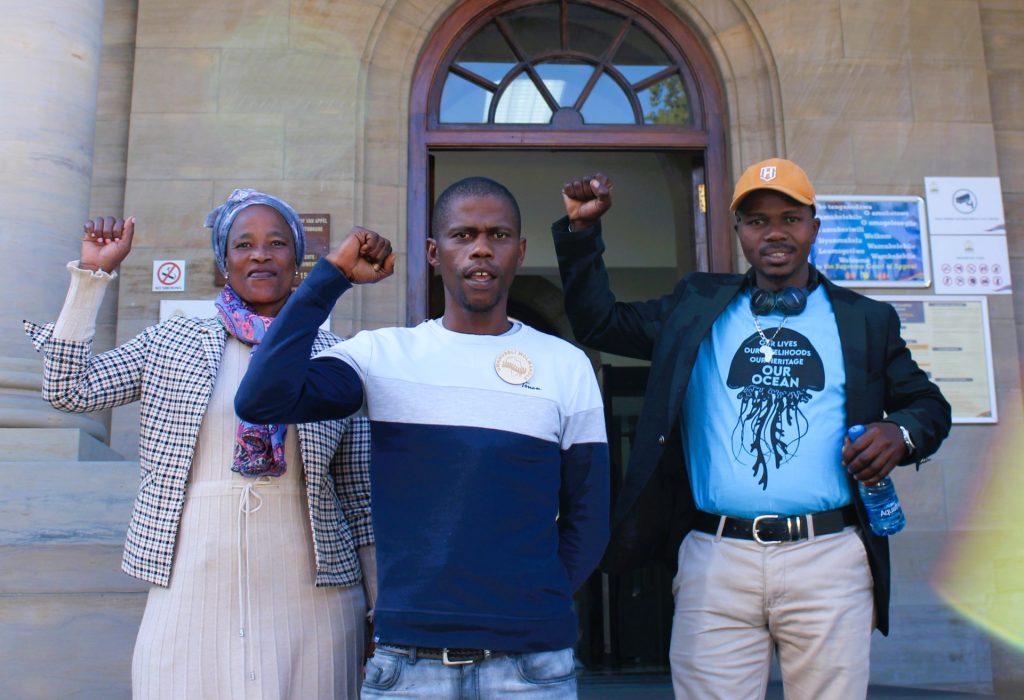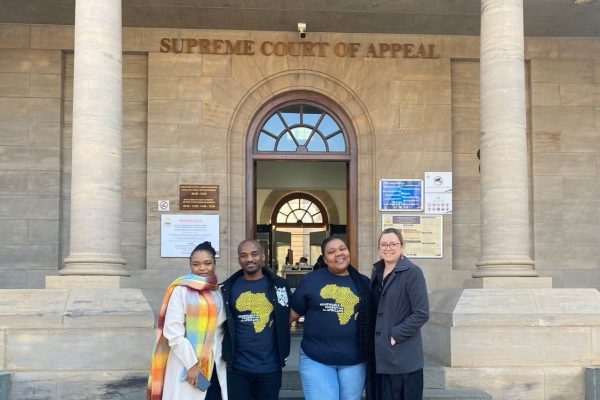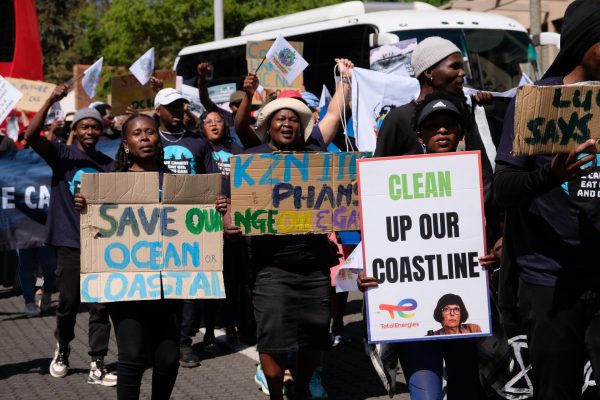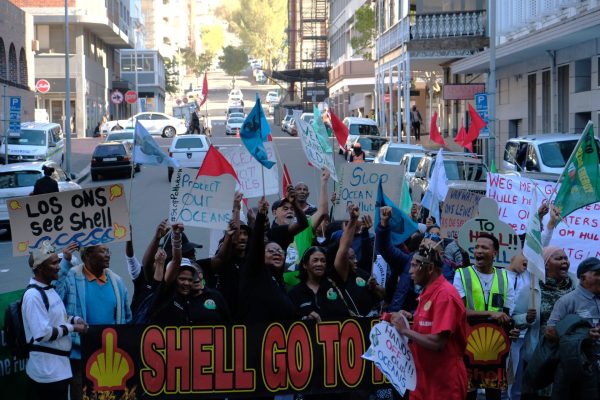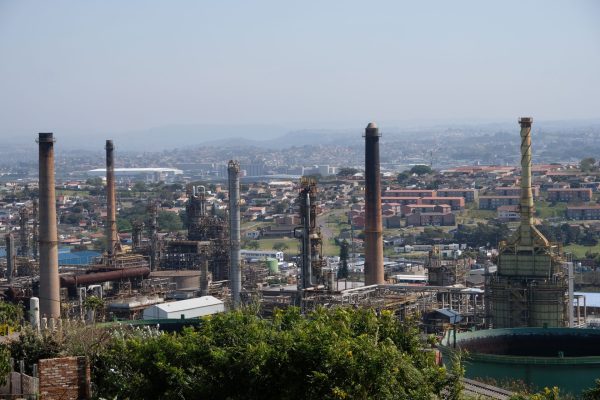Communities and Environmental Justice organisations face Shell and Impact Africa in the Constitutional Court
10 September 2025, Johannesburg: In a Constitutional Court hearing set down for next week, 16-17 September 2025, Wild Coast communities and environmental organisations will argue that the order of the Supreme Court of Appeal (SCA) allowing Shell to renew its exploration right for oil and gas seismic surveys off the Wild Coast, was incorrect and should not stand.
The court case was brought in December 2021 by Sustaining the Wild Coast, Wild Coast communities, Wild Coast small-scale fishers and All Rise Attorneys, represented by the Legal Resources Centre (LRC) and Richard Spoor Incorporated. Natural Justice and Greenpeace Africa, represented by environmental law firm Cullinan and Associates, subsequently joined the case.
In 2022, the High Court deemed the right unlawful and halted the seismic exploration. In May last year, the SCA agreed with a High Court judgment, but the SCA took the unusual step of giving Shell the opportunity to renew its unlawful exploration right.
In the Constitutional Court, the communities will argue that Shell should not be allowed to renew a right that has been declared unlawful by both the High Court and the SCA. Fortunately, the Constitutional Court denied an application by Shell and Impact Africa to appeal the declaration of unlawfulness.
The Wild Coast communities and environmental justice organisations say that the SCA order violates the Constitution and does not give effect to the rights of the communities and other parties to fair administrative action, nor the communities’ livelihoods and their cultural and spiritual rights, protected under our Constitution. The order also fails to provide any clarity on what Shell and the Minister must do to remedy the defects of the earlier processes. To be just and equitable, an order must be clear.
The SCA found that, while it agreed with the High Court declaring the right unlawful, this outcome, which would see Shell unable to start an application process afresh due to a moratorium currently in place, would be “too harsh” and hence ordered that the Minister may consider a renewal of the unlawful permit. However, the organisations argue that the SCA did not have sufficient grounds to “ameliorate the harshness” of the High Court judgment.
This case raises important constitutional questions about the appropriateness of the “just and equitable relief” granted by the SCA, in particular, as it relates to infringement of constitutional rights. This has implications for the broader public, as it may determine how courts provide remedies in court cases when a decision has been declared unlawful.
Sinegugu Zukulu from Sustaining the Wild Coast: “For us as coastal communities, this case is about environmental justice, and Indigenous coastal communities being able to continue to live peacefully on their land, enjoying the livelihoods that they derive from the ocean and continuing to be stewards of the environment and ocean without having to deal with the negative impacts of extractive industries. The case is about recognizing that the rights of coastal communities are more important than the profit-making of oil giants who are pushing to make profit in the face of climate change, which disproportionately affects rural communities who have no insurance against climate change impacts.”
Activists from the Wild Coast, small-scale fishers and mining affected communities will be protesting outside court next week and will be holding educational events at Con Hill.
Wilmien Wicomb from the Legal Resources Centre: “While the SCA reaffirmed the rights of local communities directly affected by exploration activities, its intervention to require an additional public participation process to cure an insufficient process already undertaken falls short of being a just, equitable, and effective remedy. By delaying the setting aside of the exploration right until Shell’s renewal application is determined, the decision fails to adequately vindicate the infringed rights of affected communities and does not cure the flaws in the original consultation process.”
Melissa Groenink-Groves from Natural Justice: “This case is about more than oil and gas. It’s a case about communities along the Wild Coast standing together, standing strong, resisting a future that harms their livelihoods, that harms our collective climate and harms future generations. We trust that the highest court in the country will put people over profit, vindicating their Constitutional rights.”
Sherelee Odayar from Greenpeace Africa: “The Wild Coast sustains livelihoods, culture, and biodiversity. Shell’s proposed exploits threaten these constitutionally protected rights. When companies like Shell ignore people’s voices and the climate crisis, the courts must step in.”
ENDS

